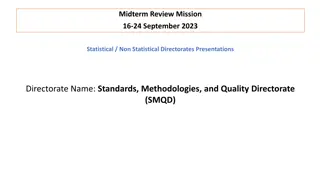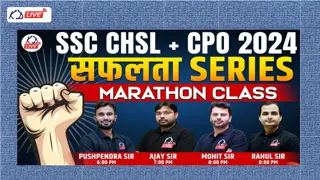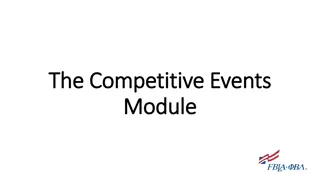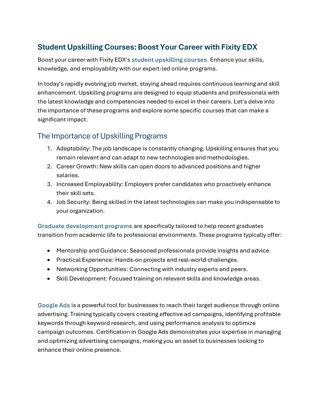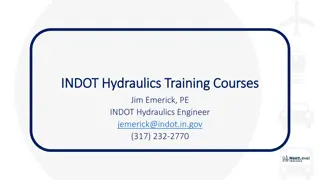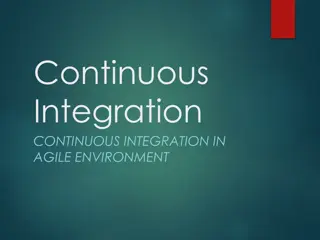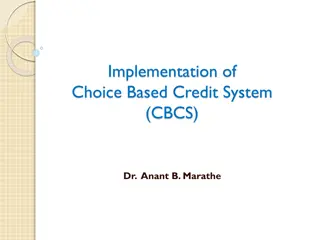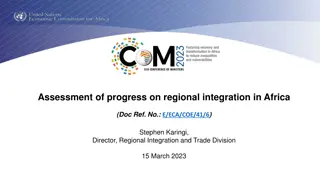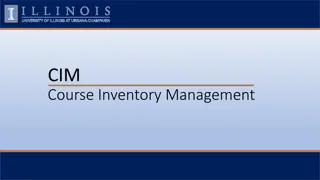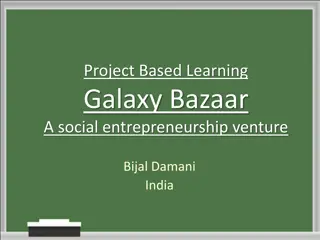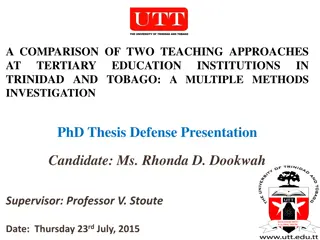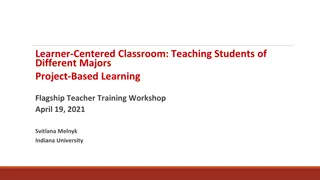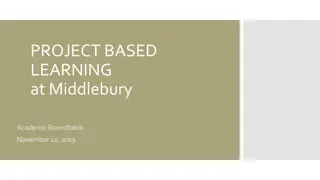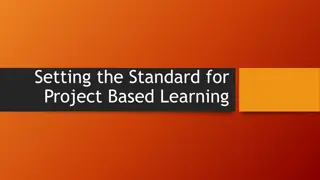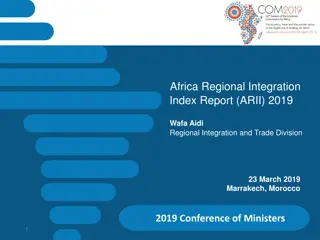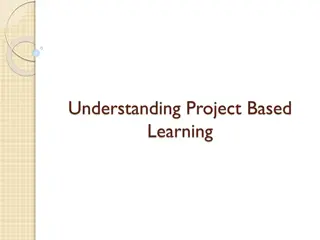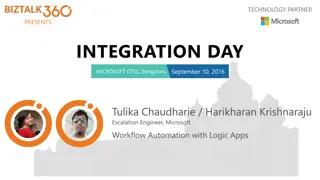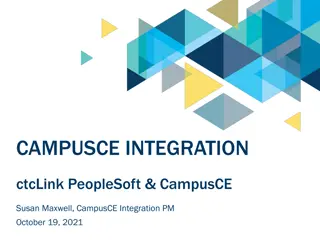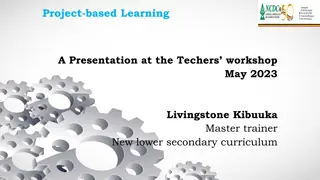Integration of PBL Methodologies into Online Learning Courses and Programs
This presentation discusses the integration of Problem-Based Learning (PBL) methodologies into online learning courses and programs. It highlights the importance of active engagement, community learning, and collaborative knowledge building in the online educational environment.
Download Presentation

Please find below an Image/Link to download the presentation.
The content on the website is provided AS IS for your information and personal use only. It may not be sold, licensed, or shared on other websites without obtaining consent from the author.If you encounter any issues during the download, it is possible that the publisher has removed the file from their server.
You are allowed to download the files provided on this website for personal or commercial use, subject to the condition that they are used lawfully. All files are the property of their respective owners.
The content on the website is provided AS IS for your information and personal use only. It may not be sold, licensed, or shared on other websites without obtaining consent from the author.
E N D
Presentation Transcript
Integration of PBL Methodologies into Online Learning Courses and Programs Presented by: Dr. Roland vanOostveen; Dr. Elizabeth Childs, Kathleen Flynn & Jessica Clarkson IADIS 2014
Screen Shot 2014-06-23 at 3.15.59 AM.png https://www.youtube.com/watch?v=SxAKFzOHzag
AEDT Online Pedagogical Model (Modified from Garrison, Anderson & Archer, 2000)
Problem Orientation / Learner Control Problem orientation with respect to learning control (Modified from Lock, 1990).
TCU Framework SAMR Model
We've grown used to showing up to tutorials and being poked with questions and then we poke back with questions and then poke each other with questions right and I think a lot of us really appreciate that environment, it allows us to think all over the place - to think in the areas that we already have pieced together and when someone mentions something that we haven't quiet pieced together... so if you are going to do PBL, you have got to just roll up your selves and do it. You can t just be a fly on the wall and pretend that this is all just going to assimilate into your body and you ll be stronger, wiser, more crafty, so I think you just have to get in there and do it.
...that its a learning community, everybody is an equal role, that you're modeling with your TAs the same thing that you are modeling with your students, the same things that you are modeling... that its a whole community of constructive feedback and everybody is a learner in this community in some way If it is going to be truly community space, then it needs to be shared.
I think the wiki is perfect because I think each of us could contribute a little, I think grads could contribute a little... WebKF [Knowledge Forum] ... really did help to extend and jump back and forth and build and build and build and you could see those trailing thoughts and I found that Blackboard is a really cold environment - that's how I would describe it and it cut those conversations off...
some professors are still struggling with the idea of handing over control facilitate that kind of a sharing of experience ...that could be done with informal meetings that they could set up ...make some little video or something that then can be shown to the next group and then build and build and build on that so we have a library of experience. ...the interaction that goes on in tutorial...the flexibility has been great, absolute pleasure to do those assignments... people are producing really quality work, lot of thought provoking things.
Roland.Vanoostveen@uoit.ca Elizabeth.Childs@uoit.ca Kathleen.Flynn@Uoit.ca Jessica.Clarkson@uoit.ca


